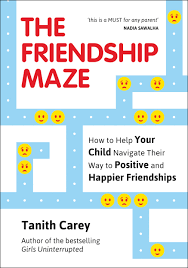
By Charlotte Collis of Totalnannies, Specialist Recruiter
If you look back at your days at nursery and primary school, you probably remember them as the most carefree of your lives. Your time was probably spent sitting crosslegged on the floor, chanting songs and listening to stories before you ran outside for playtime with your friends. Now the nursery and school ‘curriculum’ is much more structured and schools feel they have to cut back on break-time to keep up with national targets.
Recent research from University College, London shows that primary school pupils have 45 minutes less break time a week than in 1995 while secondary pupils have 65 minutes less. Other research from the Nuffield Foundation has found that schools have been cutting back on play-time since 2006. All this comes at a cost.
As they spend more time indoors, playing video games and watching screens by themselves, the UCL study found they are also spending less time face to face with each other. When children play together, they learn how to compromise, make up rules, think creatively, learn important facial and verbal cues, and discover what behaviour is acceptable to others and what is not.
Playing together is how children learn to play different roles, imagine situations from different perspectives, share idea and create worlds in which all participants belong. Get it wrong, your playmates don’t want to play anymore and the fun stops.
So what can we do as nannies or parents to help kids find more time to play together and get the socialisation they need?
Prioritise more time outside
When UNICEF asked children what they wanted for happiness they named three things – time with families, time outdoors and having friends. All three are closely linked. Yet children rarely get this outside time. While 73% of children ages 7 to 12 surf the internet unsupervised according to a study by Play England, 42% are not allowed to play in their local park without an adult.
Have more outdoor play-dates
Research shows that when children play together, they have more fun and squabble less if they spend most of the time outdoors. That’s because there is less to argue over (after all, there are unlimited branches, twigs and leaves) and more to explore. Children also bond more when they discover new thing and have adventures together.
Get together with neighbours
Get to know other families living nearby and look out for local places where kids can play. Get together and get permission from your local authority to turn your road into a play street by closing it to traffic. Supervise each other’s kids in outdoor spaces so they can roam further afield.
30 things your child would like to do: by every age
Whether it’s making dens, camping overnight, making a beach sculpture out of drift wood, or planting a tree, devise a list with your child of all the achievable things they want to do by a certain age.
Teach friendship skills
Lack of playtime means that sometimes children need help with their friendship skills. Bridge the gap with role-play games so they can learn to see others’ perspectives, and set up plenty of play-dates so they can practice. Enjoy meals together so they learn the to-and-fro of conversation.
Find more ways to help children learn friendship skills in Tanith’s new book The Friendship Maze: How to help your child Navigate Their Way to Positive and Happier Friendships, published by Summersdale and available from Amazon.


